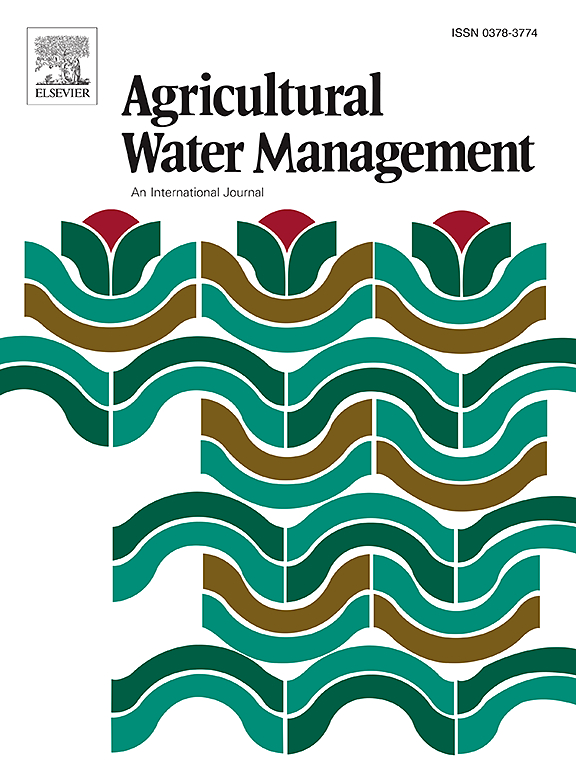Evaluating the tradeoffs between water conservation, aesthetic value, evaporative cooling and CO2 emissions in St. augustinegrass and buffalograss
IF 6.5
1区 农林科学
Q1 AGRONOMY
引用次数: 0
Abstract
Urban lawns comprise a significant portion of urban greenery and provide several ecosystem services. Nevertheless, maintaining lawns comes with significant water costs in semi-arid inland southern California, as they require consistent irrigation to stay healthy and productive. The main objective of this study was to evaluate the effect of a wide range of irrigation rates and frequencies applied autonomously by a smart ET-based controller on the aesthetic value, cooling potential, and CO2 efflux of two warm-season turfgrass species. For three years, we studied the responses of Buffalograss and St. Augustinegrass to six irrigation rates and two irrigation frequencies in Riverside, California. Under historical average climate conditions, the minimum irrigation rate for Buffalograss was 93 % ETo, and for St. Augustinegrass, it was 74 % ETo. Under projected future climate conditions, the estimated minimum irrigation rate for Buffalograss did not change, but for St. Augustinegrass, it increased by 4 % and 7 % in 2100 under low emission (RCP 4.5) and high emission (RCP 8.5) scenarios, respectively. On average, canopy minus air temperature in Buffalograss was 6.2 ℃, and in St. Augustinegrass, it was 1.1 ℃. The average CO2 efflux in Buffalograss was 122.3 µg CO2-C m−2 s−1, and in St. Augustinegrass, it was 182.8 µg CO2-C m−2 s−1. Our results showed that turfgrass aesthetic values, cooling potential, and CO2 efflux diminished as the irrigation rate decreased, but at different rates for each turfgrass species.
评估圣奥古斯汀草和水菖蒲在节水、美学价值、蒸发冷却和二氧化碳排放之间的权衡关系
城市草坪占城市绿化的很大一部分,并提供多种生态系统服务。然而,在半干旱的南加州内陆地区,维护草坪需要大量的水成本,因为草坪需要持续灌溉才能保持健康和高产。本研究的主要目的是评估基于智能蒸散发控制器的多种灌溉速率和频率对两种暖季型草坪草的美学价值、降温潜力和二氧化碳排出量的影响。三年来,我们在加利福尼亚州河滨研究了水飞蓟和圣奥古斯汀草对六种灌溉速率和两种灌溉频率的反应。在历史平均气候条件下,水飞蓟的最低灌溉率为 93 % ETo,圣奥古斯丁草的最低灌溉率为 74 % ETo。在预测的未来气候条件下,在低排放(RCP 4.5)和高排放(RCP 8.5)情景下,水飞蓟的最小灌溉率估计值没有变化,但圣奥古斯丁草的最小灌溉率在 2100 年分别增加了 4% 和 7%。水飞蓟草的冠层负气温平均为 6.2 ℃,圣奥古斯丁草为 1.1 ℃。水飞蓟草的平均二氧化碳排出量为 122.3 µg CO2-C m-2 s-1,圣奥古斯丁草为 182.8 µg CO2-C m-2 s-1。我们的研究结果表明,随着灌溉率的降低,草坪草的美学价值、冷却潜力和二氧化碳排出量都会减少,但每个草坪草品种的减少速度不同。
本文章由计算机程序翻译,如有差异,请以英文原文为准。
求助全文
约1分钟内获得全文
求助全文
来源期刊

Agricultural Water Management
农林科学-农艺学
CiteScore
12.10
自引率
14.90%
发文量
648
审稿时长
4.9 months
期刊介绍:
Agricultural Water Management publishes papers of international significance relating to the science, economics, and policy of agricultural water management. In all cases, manuscripts must address implications and provide insight regarding agricultural water management.
 求助内容:
求助内容: 应助结果提醒方式:
应助结果提醒方式:


